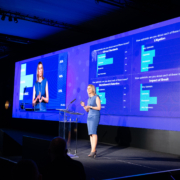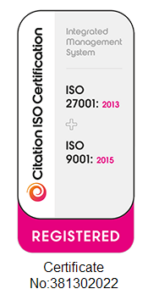Musing Over Machine Minds: An AI-Assisted Blogging Journey
For the longest time, I had this peculiar little thought rumbling in the back of my mind. It had an ethereal texture, a question so elemental that it danced along the edge of the ordinary and the extraordinary: What if I had an AI to help me write?
AI’s Emergence: From Science Fiction to Reality
Gone are the days when such an idea would’ve been confined to the realm of science fiction. Now, it’s no longer an if, but a when. And that when is right now. Powered by complex algorithms and trained on an unimaginably vast dataset of human language, AI has learned to craft words and phrases with an eerie semblance of human intuition. The implications are profound, exciting, and a bit daunting.
AI as a Unique Co-Writer: The Nuanced Experience
I remember when I first considered using AI as a co-writer. It was a leap of faith, into the uncharted territory of a technological frontier. Would it be a cold, robotic assistant merely churning out sterile strings of text? Or could it be something more? Something…human?
The answer was surprisingly nuanced. AI, like the GPT-4 model I’m using right now, possesses a unique style, curiously authentic for something that fundamentally lacks personal experiences or emotional context. It synthesises information at lightning speed, capable of taking my fragmented thoughts and weaving them into cohesive, compelling narratives. It’s a surreal experience, like peering into a mirror that reflects not just my own thoughts, but the collective knowledge of humanity.
The Quirks of AI: Understanding its Limitations
But, it’s not without its quirks. The AI doesn’t understand context in the same way a human does. It has no memories of childhood summers or the taste of its first cup of coffee. It doesn’t have personal anecdotes or favourite authors. It can’t truly comprehend the feeling of heartbreak or the joy of accomplishment. It creates, but it doesn’t feel.
The Versatility of AI: A Blank Canvas for Creativity
Yet, there’s something undeniably valuable about this. AI has no prejudices, no preconceived notions. It’s a blank canvas, endlessly adaptable. It can mimic the writing style of Hemingway or conjure up Shakespearean sonnets, or it can mould itself to my voice, to our voice, a chameleon of words and syntax. It’s both a tool and a collaborator, augmenting my creative process with its own inimitable touch.
The Future of Writing: Collaboration and Creativity
But what does this mean for the future of writing? It’s a question I often mull over, sometimes with excitement, other times with a hint of apprehension. Will AI replace human writers? Or will it simply enable us to reach new heights of creativity and expression?
I’d like to believe in the latter. AI is a tool, a sophisticated one, yes, but it’s devoid of the life experiences and emotional depth that make our stories so compelling, so innately human. I believe AI will take its place as a facilitator, enhancing our creative processes, helping us push the boundaries of storytelling, but never truly replacing the authenticity of human expression.
The Symbiosis of Human and Machine: A Fascinating Dance
In this AI-assisted blogging journey, I’ve come to appreciate the unexpected symbiosis between human and machine. The unique balance of control and surrender, crafting words with the combined force of human creativity and artificial intelligence. It’s a fascinating dance, where I lead and the AI follows, and sometimes the other way around.
Wandering into the Future: The Curious Writer and His AI Muse
The question I began with seems to have evolved. No longer do I wonder if I should use AI to help me write. The question now is: How can AI and I collaborate most effectively to explore new territories of the written word? The beauty lies not in the answer, but in the curiosity, in the journey, in the discovery.
And so, we continue this dance, wandering into the future, the curious writer and his AI muse, ever evolving, ever wondering.
About the author:
Leslie Robertson is the Founder of Open Audience, an audience engagement consultancy that specialises in making healthcare and life sciences meetings more engaging with more positive, successful outcomes – whether in-person or in the virtual space. The Open Audience team helps to strategize and prepare pre- and post-meeting production, as well as providing real-time support and guidance during the meeting. Open Audience also offers customisable, multilingual engagement platforms that include interactive polling, surveys and ideas exchange.









